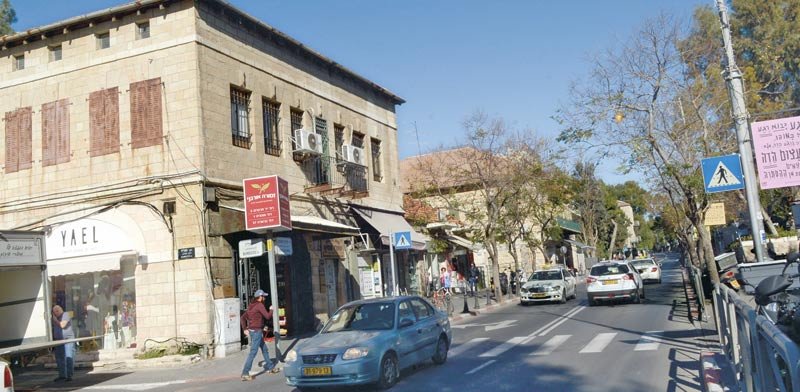Jerusalem businesses to get 4 months warning on light rail works

The Jerusalem District Planning and Building Commission recently decided that residents and businessowners in the area of Emek Refaim Street in the Germaqn Colony section of the new light rail route would be given a least four months prior notice before the work is started. Only 10 days notice has been given up until now. Work is scheduled to take 3-4 years.
The decision followed a request submitted to the subcommittee for objections. The decision states, "The minimum period of time for informing the public before beginning work in this plan shall be four months, not 10 days, as proposed in the deposited plan." The committee added that the process of informing the public would include a notice to the community administration, so that it could inform residents in the area. Signs will be posted at central points along the street. The subcommittee qualified this decision, stating that the Jerusalem municipal engineer was authorized to reduce the minimum time for informing the public to three months at most.
The objections subcommittee also heard complaints that the proposed outline plan gives the project developers too much flexibility in the timetable for the plan, and does not take into account the damage and uncertainty created for the public as a result of the absence of binding performance dates in the plan.
The subcommittee, headed by Jerusalem District Planning and Building Commission chairperson Amir Shaked, accepted the complaint by the opponents, some of whom were represented by Adv. Assaf Niv. The subcommittee stated that there were businesses and rental apartments on Emek Refaim Street that constituted a source of income for residents, to whom planning uncertainty would cause "great damage."
The District Planning and Building Commission therefore accepted the argument that this uncertainty should be reduced, and accordingly ruled, "The maximum time for infrastructure work in building the light rail (the "Infra 1" stage being carried out by the Jerusalem municipality) under this plan is four years, starting on the date on which the work begins... The Commission has the authority to approve an extension of the deadline of up to six months." The original plan allowed a maximum period of 15 years for carrying out the plan.
Related News
